showing entries tagged "Financial"
Are Checks Obsolete?
Checks hold an odd place in our personal finances. In many ways, checks seem like relics from a previous era. We maybe write one or two checks a month (usually for rent or similar bill-paying situations where electronic payment simply isn’t an option). This is vastly different from only a few decades ago, when checks represented more than 85% of all non-cash retail payments. (Can you imagine whipping out a checkbook in line at the grocery store? Times have certainly changed!)
by: Banzai
When You Can't Afford Your Minimum Payments
It’s scary to find yourself in a situation where you can’t afford your monthly debt payments. Whether that’s due to a sudden life change, like a job loss or illness, or if you’ve simply found yourself unable to keep up, there are steps you can take.
by: banzai
Tax Brackets and Statuses
How much you owe in federal income taxes is determined by many factors, but your tax bracket and status will likely have the biggest impact.
by: Banzai
Trusts
A trust, similar to a will, is a way to designate what happens to a person’s belongings after they pass away.
by: IAMT
Use Psychology to Build a Budget You’ll Stick With
When you start looking for financial advice (or any kind of advice, for that matter), experts will share their take on what’s “good” and what’s “bad.” In personal finance, there are some classifications that we can all agree on: Debt is bad. Emergency funds are good. Overdrawing your account is bad. Earning interest on your savings is good.
by: IAMT
When’s the best time to write a business plan?
Writing a business plan is an essential part of building a successful business. At its core, a business plan is a road map for your project: it establishes your purpose, it sets goals and expectations, and it forecasts the relationship between cost and revenue. Business plans exist in many forms: some formal and some informal.
by: IAMT
The Effect of Time on Investing
Investing can seem like a very risky, complex and fast-moving process. With endless combinations of investment vehicles to choose from, it can be difficult to take your first step as an investor—especially with the knowledge that all investments carry the risk of losing some or all of your money. So why bother?
by: IAMT
Where You Seek Financial Advice Says a Lot About You
How did you decide where to open your first bank account? Where did you learn to budget or pay bills? If you have a money question now, what do you do? Who do you turn to?
by: IAMT
How to Stop Lifestyle Creep in its Tracks
Have you ever caught yourself daydreaming about all of the amazing lifestyle changes that await you just beyond your next pay raise? Have you ever fantasized about how to spend a work bonus, only to have the money instantly disappear into your monthly spending? If this sounds familiar, you might be prone to lifestyle creep.
by: IAMT
Learn to Spend, Save and Give
For most people, spending comes naturally. Saving up for something special is harder. And setting money aside for giving is really hard.




